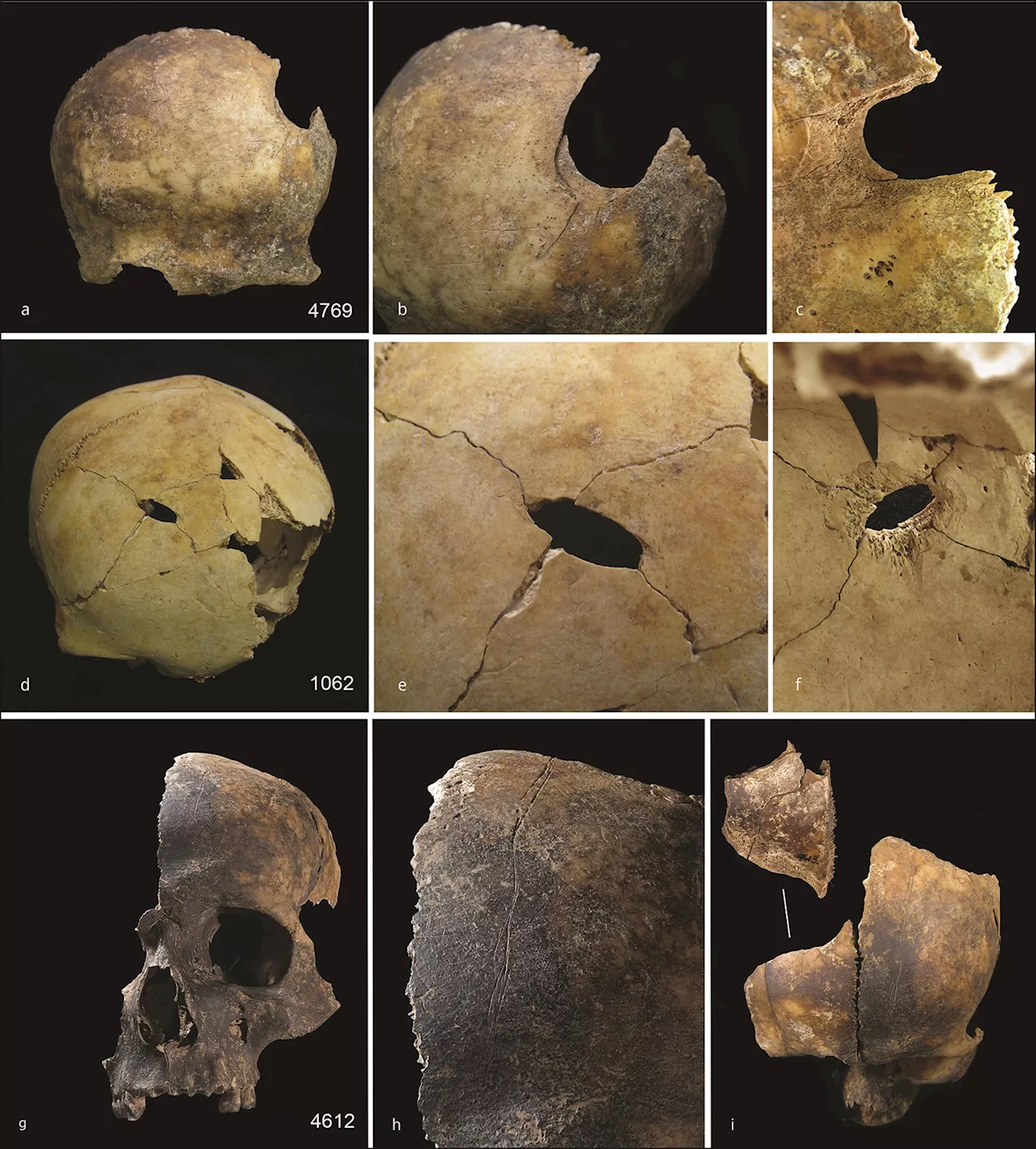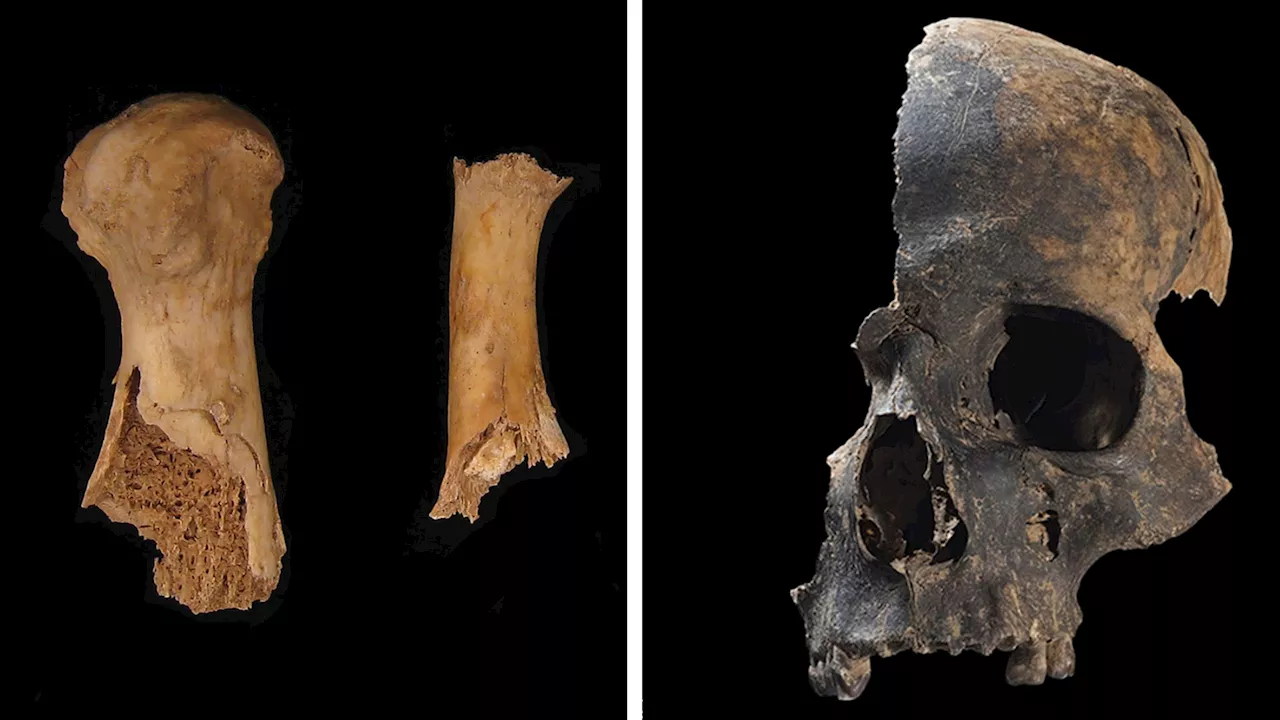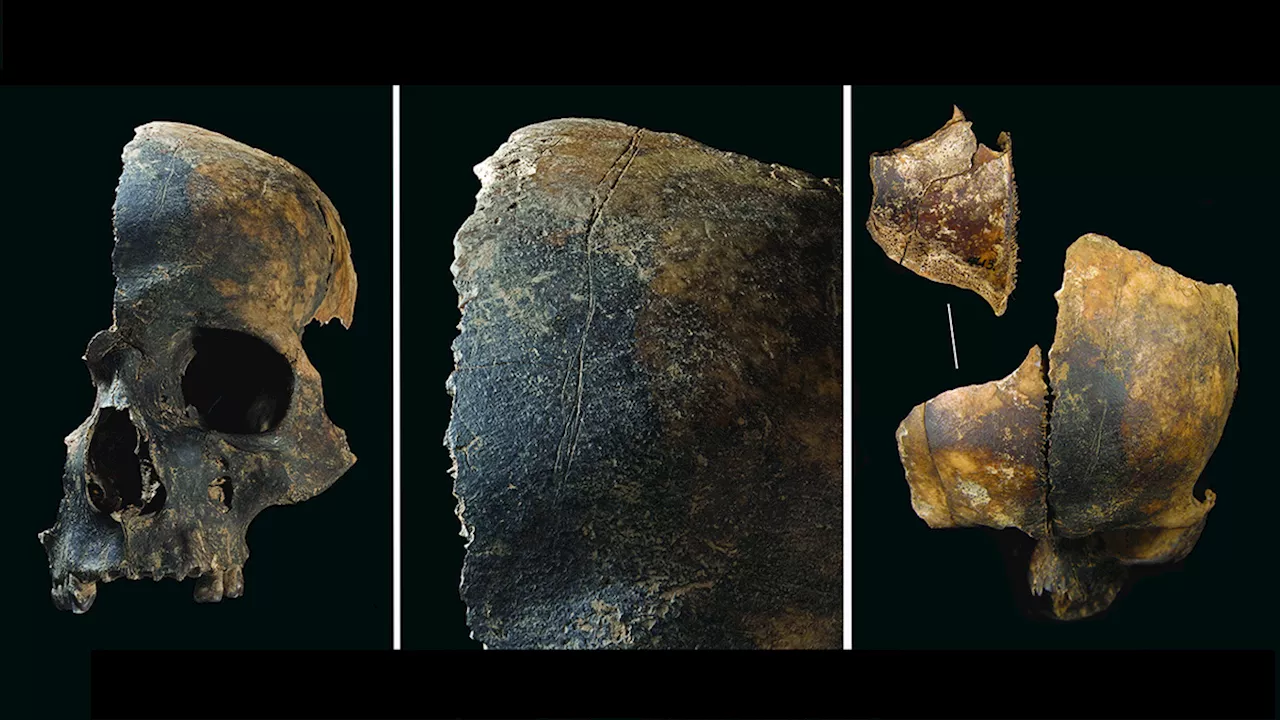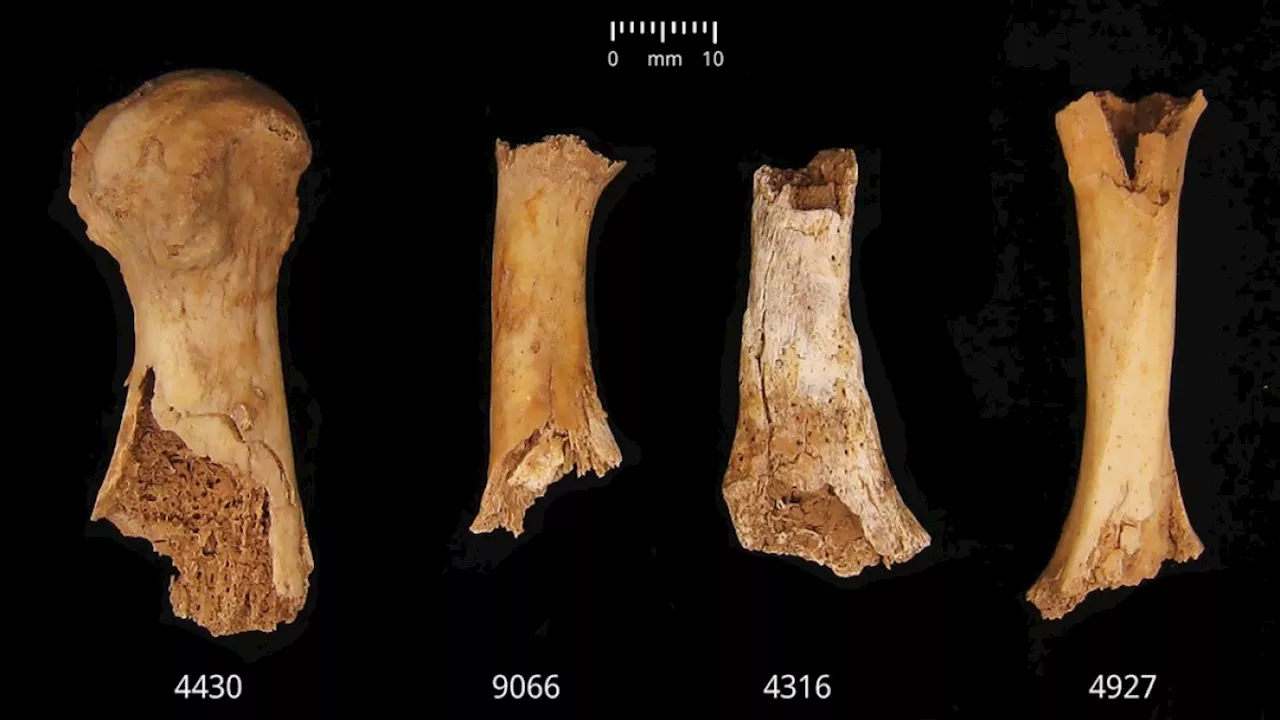Archaeologists excavating a 50-foot pit in Charterhouse Warren, England, unearthed over 3,000 bones showing signs of extreme violence. The findings suggest a massacre took place between 2210 B.C. and 2010 B.C., a unique event in Early Bronze Age Britain.
Over 3,000 bones were excavated from a 50-foot pit in Charterhouse Warren, around 20 miles south of the city of The bones, which were chosen for analysis because of the “sheer number of cutmarks,” were first discovered by cavers in the 1970s, researchers said.They had more violence inflicted on them then what would normally be seen'in a butchered animal bone assemblage,” Rick Schulting, the study's lead author, told NBC News in an email Monday.
Schulting, a professor of scientific and prehistoric archaeology at Britain's University of Oxford, said that the archeology at the site is “exceptional.” “The most surprising thing is the sheer extent of the violence carried out on the bodies,' he said.'They were killed with blows to the head, and then systematically dismembered, defleshed, bones smashed apart.'The violence took place “probably in a single event between” 2210 B.C. and 2010 B.C., researchers suggest, adding that it's a unique example of extreme violence in Early Bronze Age Britain and that'nothing else on this scale” has been recorded in Britain. Examples of cranial trauma on a Bronze Age skull recovered from Charterhouse Warren (Antiquity Publications Ltd / Cambridge University Press) However, Schulting said the extreme violence was unlikely to have been an isolated incident in the U.K. at the time. “There would have been repercussions, as the relatives and friends of the victims sought revenge, and this could have led to cycles of violence in the region,” he added. Schulting said that determining the motive behind such as an attack is “one of the hardest things to do in archaeology.” But together with his fellow authors, he concluded in the study that the massacre was likely driven by a furious “spiraling cycle of revenge” within or between Early Bronze Age communitie
Archaeology Violence Bronze Age Massacre Britain
United States Latest News, United States Headlines
Similar News:You can also read news stories similar to this one that we have collected from other news sources.
 Massacre in Bronze Age Britain: 3,000 Bones Reveal Gruesome Evidence of ViolenceArchaeologists excavate over 3,000 bones from a pit in Charterhouse Warren, revealing evidence of systematic violence inflicted on the bodies during the Early Bronze Age. The study suggests a single event of extreme violence, likely driven by a cycle of revenge between communities.
Massacre in Bronze Age Britain: 3,000 Bones Reveal Gruesome Evidence of ViolenceArchaeologists excavate over 3,000 bones from a pit in Charterhouse Warren, revealing evidence of systematic violence inflicted on the bodies during the Early Bronze Age. The study suggests a single event of extreme violence, likely driven by a cycle of revenge between communities.
Read more »
 Using Chatbots and Ancient Writing to Simulate the Cultural Attitudes of Ancient CivilizationsSocial psychologists could turn artificial-intelligence-powered tools like ChatGPT on to writings from past cultures. Will this help us study ancient civilizations?
Using Chatbots and Ancient Writing to Simulate the Cultural Attitudes of Ancient CivilizationsSocial psychologists could turn artificial-intelligence-powered tools like ChatGPT on to writings from past cultures. Will this help us study ancient civilizations?
Read more »
 Bronze Age Bones Indicate Violent Death and Possible CannibalismFind out more about this historic find and how it illuminates a darker side of early human history.
Bronze Age Bones Indicate Violent Death and Possible CannibalismFind out more about this historic find and how it illuminates a darker side of early human history.
Read more »
 Bronze Age Britain’s butchered bones reveal brutal cannibalism to dehumanize foesThe remains of at least 37 individuals, including men, women, and children, suggest they were brutally murdered, butchered, and possibly cannibalized by their enemies.
Bronze Age Britain’s butchered bones reveal brutal cannibalism to dehumanize foesThe remains of at least 37 individuals, including men, women, and children, suggest they were brutally murdered, butchered, and possibly cannibalized by their enemies.
Read more »
 Butchered bones suggest violent 'othering' of enemies in Bronze Age BritainAnalysis of the remains of at least 37 individuals from Early Bronze Age England finds they were killed, butchered, and probably consumed before being thrown down a 15m-deep shaft. It is the largest-scale example of interpersonal violence from British prehistory. The treatment of the remains was likely a means to dehumanize or 'other' the victims.
Butchered bones suggest violent 'othering' of enemies in Bronze Age BritainAnalysis of the remains of at least 37 individuals from Early Bronze Age England finds they were killed, butchered, and probably consumed before being thrown down a 15m-deep shaft. It is the largest-scale example of interpersonal violence from British prehistory. The treatment of the remains was likely a means to dehumanize or 'other' the victims.
Read more »
 4,000-year-old bones reveal 'unprecedented' violence — tongue removal, cannibalism and evisceration in Bronze Age BritainKristina Killgrove is a staff writer at Live Science with a focus on archaeology and paleoanthropology news. Her articles have also appeared in venues such as Forbes, Smithsonian, and Mental Floss. Killgrove holds postgraduate degrees in anthropology and classical archaeology and was formerly a university professor and researcher.
4,000-year-old bones reveal 'unprecedented' violence — tongue removal, cannibalism and evisceration in Bronze Age BritainKristina Killgrove is a staff writer at Live Science with a focus on archaeology and paleoanthropology news. Her articles have also appeared in venues such as Forbes, Smithsonian, and Mental Floss. Killgrove holds postgraduate degrees in anthropology and classical archaeology and was formerly a university professor and researcher.
Read more »
